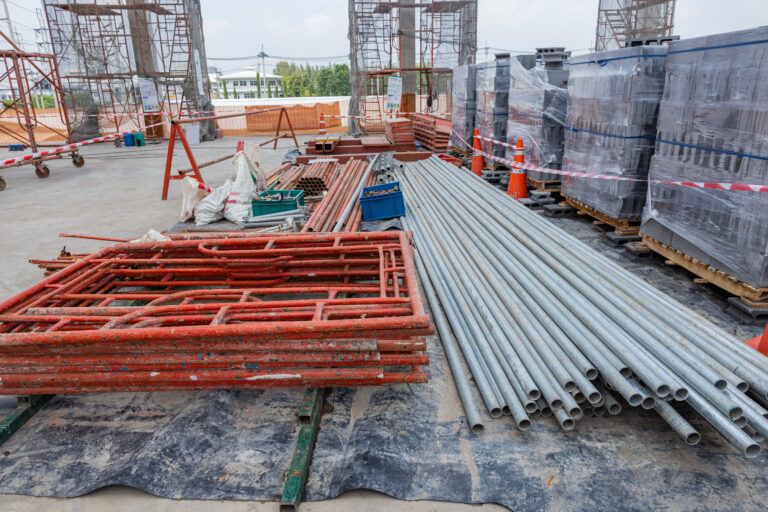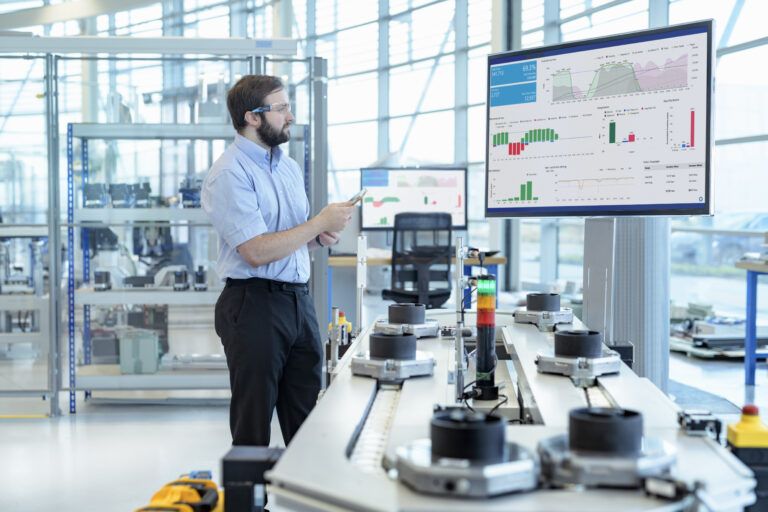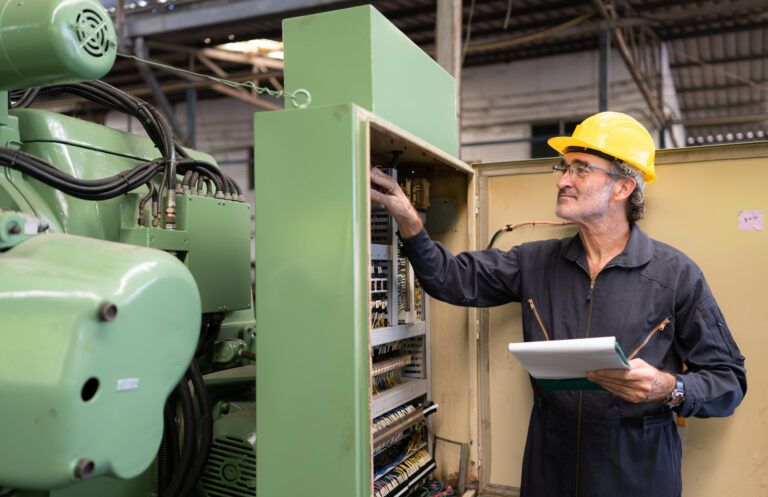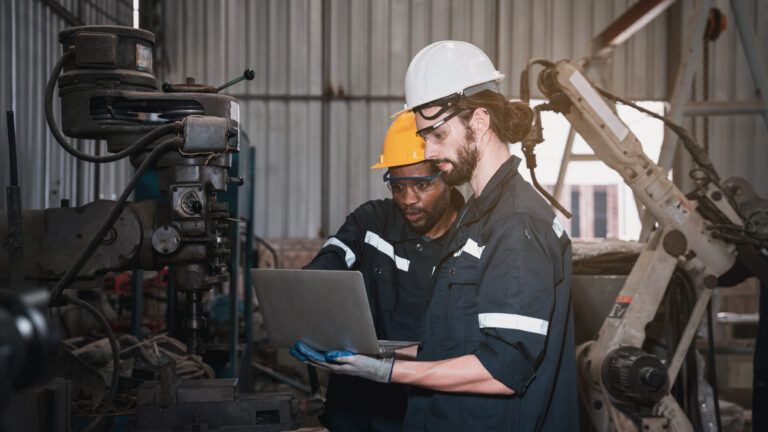You graduated with a degree in mechanical engineering. Now what?
That question becomes overwhelming when job boards display 50+ different mechanical engineering role titles across multiple industries. Design engineer. Project engineer. Systems engineer. Process engineer. Rotating equipment specialist. The list goes on.
Here’s what most career guides won’t tell you: your mechanical engineering degree qualifies you for way more opportunities than the standard manufacturing plant job, especially in mechanical engineering services spanning carbon capture engineering, digital transformation consulting, and multi-discipline integration roles.
This guide covers eight major career trajectories. Traditional manufacturing facilities. New energy sectors like renewable energy and carbon capture. Industrial consulting firms. You’ll find paths using your thermodynamics knowledge in renewable energy. Roles combining mechanical design with instrumentation and controls. Specialised positions in owner/operator companies versus EPC contractors.
The difference? This isn’t standard university career centre advice. This comes from watching mechanical engineers build careers in directions they never imagined during undergrad. Four decades of engineering projects. Thirteen energy markets. Calgary to Houston to Muscat.
Disclaimer: Salary ranges change constantly. Job market conditions shift. Industry demand fluctuates based on economic factors, location, and new technology. All information reflects 2025 data. Verify everything with current sources and industry professionals. Do your own regional market research before career decisions.
Traditional Mechanical Engineering Roles That Build Your Foundation
Start here. Seriously.
Most mechanical engineers start in one of four roles. Design engineer creating technical specs. Project engineer coordinating teams. Manufacturing engineer improving production. Quality engineer ensuring compliance. These aren’t just entry-level positions you tolerate. They’re your technical launchpad.
The smartest early-career strategy? Get broad exposure first. Work across multiple engineering disciplines. Then choose your specialisation.
Design Engineering as Your Technical Launchpad
Design engineers turn ideas into detailed technical specs for manufacturing. You’ll create 3D CAD models using SolidWorks. Run FEA simulations to verify structural integrity. Select materials based on mechanical properties. The work teaches you how things actually get built. Reality versus textbook problems.
Modern design engineering goes beyond traditional CAD work. You’re improving designs for additive manufacturing. Considering sustainability metrics alongside performance specs. Learning parametric modelling that feeds into digital twinA digital twin is a precise, virtual representation of a physical object system, process, or asset. Digital twins integrate machine learnin... systems.
Two years in design gives you the technical depth needed for specialised roles later. You understand tolerances. Material properties. Manufacturing constraints. This foundation matters regardless of where your career eventually takes you.
Project Engineering Roles That Teach Business Basics
Project engineers coordinate technical work across multiple engineering disciplines. Mechanical, electrical, civil, and instrumentation teams. You’ll track deliverables. Manage budgets. Communicate with clients. Less technical depth, more business exposure.
This role reveals how technical engineering decisions directly impact project economics. That upgraded pump might improve efficiency by a few percentage points. Does the capital cost justify the operational savings over 20 years? You start thinking about the total cost of ownershipThe total cost of ownership refers to the total cost of owning an industrial asset throughout its full lifecycle, from design and construc... instead of just technical performance.
Project engineering fast-tracks you toward management if that’s your direction.
Manufacturing Engineering for Process Improvement Experience
Manufacturing engineers bridge design engineering teams and production floor operations. You’ll troubleshoot production issues. Improve assembly processes. Add automation. Reduce waste. This role teaches you how theoretical designs survive contact with reality.
The experience matters even if you never work in manufacturing long-term. Understanding production constraints makes you a better designer. Knowing lean principles helps when you’re improving any industrial process later.
New Energy Sectors Creating Career Opportunities
Carbon capture engineering was relatively rare as a distinct discipline 15 years ago. Now it’s creating entirely new specialisations for mechanical engineers.
The energy transition isn’t just about solar panels and wind turbines. It’s creating career paths using core ME skills. Thermodynamics. Fluid mechanics. Heat transfer. These fundamentals apply across emerging technologies in ways that weren’t obvious a decade ago.
Carbon Capture and Storage Engineering Positions
Carbon capture projects require gas compression knowledge. Chemical separation basics. Energy efficiency skills for industrial applications. You’ll design equipment that grabs CO2 from exhaust streams. Compress it for transport. Handle injection into geological formations.
These projects are tough. Large capital investments. Unforgiving economics. You need to improve every energy input because capture systems often consume around 20-30% of a plant’s output. Getting that number down makes projects viable.
Note: Energy consumption figures for carbon capture systems vary significantly based on technology type, plant configuration, and operating conditions. Current research suggests that ranges typically fall between 15% and 35%, depending on specific applications.
The technical challenges are interesting. Amine scrubbing systems. Membrane separation. Cryogenic processes. Each approach has different thermodynamic trade-offs that mechanical engineers are uniquely positioned to optimize.
Renewable Energy Integration Roles Across Wind, Solar, and Hydrogen
Renewable energy system integration involves difficult engineering challenges beyond basic equipment installation. You’re solving intermittency problems. Designing thermal energy storage systems. Improving combined heat and power configurations that integrate renewables with existing infrastructure.
Green hydrogen and blue hydrogen projects need mechanical engineers to design compression systems. Pressure vessels for hydrogen storage. Pipeline modifications for hydrogen service compatibility. Wind and solar projects need thermal system designers for concentrated solar power plants. Balance-of-plant mechanical engineers for wind farms. HVAC specialists for battery energy storage systems that require precise temperature control.
The economics are brutal right now. But somebody needs to solve these problems, and the engineering work itself is genuinely challenging.
Energy Efficiency and Sustainability Consulting
Energy efficiency consulting combines mechanical engineering with business analysis. You’ll conduct facility audits. Identify improvement opportunities. Develop economic justifications. Oversee implementation work.
The work requires understanding HVAC systems, compressed air improvements, waste heat recovery, and process integration. You need to quantify energy savings. Estimate implementation costs. Calculate payback periods that convince clients to invest.
This path works well if you enjoy variety. Each project involves different industrial processes and equipment. One month, you’re optimising a food processing plant’s refrigeration system. The next time you’re evaluating waste heat recovery at a steel mill.
Multi-Disciplinary Engineering Paths That Multiply Your Value
The highest-paid mechanical engineers aren’t specialists in one narrow technical field. They’re multi-disciplinary professionals who have built skills across related engineering domains.
Owner organisations love hiring mechanical engineers who understand instrumentation and controls. EPC contractors value process engineers with experience in mechanical equipment design. These multi-disciplinary roles typically command higher compensation because you eliminate coordination problems, though actual figures vary widely based on industry, location, and experience level.
Expanding Into Instrumentation and Controls Engineering
Mechanical engineers transition into I&C work more easily than you’d think. You already understand the processes being controlled. Learning the control logic and instrumentation comes next.
Start your instrumentation transition by learning PLC programming languages like ladder logic. Basic control theory, including PID loops. Industrial automation principles. Understand measurement principles for pressure, temperature, flow, and level instruments.
The combination of mechanical and I&C knowledge makes you valuable for developing P&IDs. Writing control narratives. Troubleshooting operational issues. I&C intimidates mechanical engineers for no good reason. You already understand the processes. Learn the sensors and you’re 80% there.
Process Engineering Integration for Mechanical Engineers
Process engineering disciplines focus on material and energy balances using thermodynamic principles. Chemical reaction kinetics. Separation processes, including distillation, absorption, and extraction. Mechanical engineers bring equipment design knowledge that pure process engineers often lack.
You can learn process simulation software like Aspen Plus or HYSYS. Understand distillation, absorption, and extraction principles. Study reaction engineering basics. Your mechanical background helps when sizing equipment and understanding operational constraints.
This combination works particularly well in owner organisations. You can perform process improvement studies while understanding mechanical limitations. The integration of these skillsets is rare enough to be valuable.
Note on Compensation Throughout This Guide: Discussions of compensation, salary ranges, and market value are intentionally general. Actual figures vary significantly based on geographic location, company size, industry sector, years of experience, and current market conditions. Always research current compensation data specific to your situation and consult with industry professionals in your target region.
Industrial System Integration and Digital Transformation Careers
System integration roles were relatively uncommon 15 years ago. Now they’re widespread across industrial sectors.
These positions combine engineering knowledge with industrial software skills. You’re setting up asset information management systems. Building digital twins. Connecting operational data across platforms. Engineering meets IT, with compensation levels that reflect the specialized skillset combination, though specific ranges vary significantly by region and company.
What Is Asset Information Management?
Asset information management creates a single source of truthSingle source of truth (SSOT) refers to the practice of structuring information models and associated data schema such that every data ele... for all engineering data across a facility’s lifecycle. Equipment specifications live in one system. P&IDs connect to 3D models. Maintenance records link to original design documents. Everything is accessible instantly instead of being buried in filing cabinets.
Mechanical engineers succeed in these roles because they understand what data matters. Operators need access to equipment curves and operating limits. Maintenance teams need torque specs and spare parts lists. You know which information is critical because you’ve used it.
Asset Information Management System Work
The work involves setting up platforms like AVEVA’s Asset Information Management suite. You’re configuring software. Setting up data structures. Training users. Connecting systems. Technical knowledge separates you from pure IT people who don’t understand engineering workflows. Firms like Vista Projects configure these systems to ensure mechanical, electrical, and instrumentation data connect properly from day one, rather than treating integration as an afterthought.
Digital Transformation Consulting for Industrial Assets
Digital transformation consulting helps owner organisations modernise their legacy engineering information systems. You’ll assess current practices. Identify improvement opportunities. Develop implementation plans. Oversee technology adoption.
This requires understanding both engineering and change management. The technical solution is often straightforward. Getting organisations to actually change how they work? That’s where most projects succeed or fail. You’re as much a change agent as you are a technical consultant.
Capital Project Roles in Owner Operations Versus EPC Contractors
Where you work matters as much as what you do.
Owner/operator engineering feels completely different from EPC contractor work. Different pace. Different priorities. Different career trajectories.
Owner/Operator Engineering Positions and Long-Term Asset Management
Owner/operator engineers manage industrial facility assets over 20-30 year operational lifecycles. You’re not jumping between projects. You’re improving the same facilities year after year. Understanding equipment history. Developing long-term capital plans.
The work emphasises reliability and operational efficiency over cost minimisation. You specify better equipment because you’ll maintain it for decades. There’s deep satisfaction in understanding a facility’s quirks and gradually improving its performance year over year. Some engineers thrive on that continuity. Others find it limiting after several years.
EPC Contractor Roles and Diverse Project Exposure
EPC contractors design, buy equipment, and build capital projects for owner organisations across diverse industrial sectors. You’ll work on different facilities. Technologies. Industries. Six months at a petrochemical plant. Then a biofuels facility. Then, a mineral processing plant.
The variety accelerates learning. You see how different companies approach similar problems. Build a broad skill set faster than in owner roles. The pace can be intense during project execution phases, but the exposure to different industries and technologies compresses years of learning into shorter timeframes.
Career paths lead toward project management. Technical specialist positions. Business development roles.
Hybrid Consulting Positions That Serve Both Sides
Consulting firms serve both owners and contractors. You might help an owner evaluate the EPC contractor’s deliverables 1 month from now. Then support a contractor with specialised design knowledge, the next.
This position offers project variety with more continuity than pure EPC work. The work often involves troubleshooting difficult problems rather than routine design execution. You’re brought in when standard approaches aren’t working or when specialised knowledge is needed.
Specialised Technical Paths That Command Premium Compensation
Specialisation can increase your market value once you’ve built experience. After five to seven years of broad exposure, focusing on a technical niche may accelerate your compensation growth, though results vary based on market demand, geographic location, and industry sector.
What Is Rotating Equipment Engineering?
Rotating equipment engineering focuses exclusively on machinery with moving parts operating at high speeds. Pumps move fluids through process systems. Compressors handle gases at various pressures. Turbines convert energy. Motors provide mechanical power.
Specialists in this field become the go-to authorities when equipment selections matter, when a wrong pump choice costs millions in downtime.
Rotating Equipment and Machinery Specialisation
Rotating equipment specialists focus on pumps, compressors, turbines, and motors. You become the authority for equipment selection. Performance analysis. Troubleshooting. Reliability improvement.
This specialisation requires deep technical knowledge. Fluid mechanics principles. Thermodynamics for compression and expansion processes. Vibration analysis for machinery diagnostics. You’ll learn API standards for rotating equipment. Understand bearing selection and lubrication systems.
These specialists are needed for refineries, chemical plants, and power generation facilities. Large rotating equipment represents huge capital investments, and the specialised knowledge is highly valued in the market. A senior rotating equipment engineer with 15 years of experience typically commands higher compensation than general mechanical engineers at the same experience level. However, specific amounts vary by region and industry sector.
Pressure Vessel and Heat Exchanger Design Knowledge
Pressure vessels and heat exchangers are core mechanical components in the process industries. Specialists in this field understand ASME Code requirements. Stress analysis. Thermal design. Material selection for extreme conditions.
You’ll design reactors. Columns. Storage tanks. Shell-and-tube exchangers. Work requires mastering hand calculations. Finite element analysis. Code compliance verification.
The liability associated with pressure vessel design makes qualified engineers valuable. Design mistakes can cause catastrophic failures. This risk factor, combined with the specialised knowledge required, creates strong demand for experienced pressure vessel designers.
Engineering Management and Business Development Paths
Technical skills alone don’t get you to executive leadership.
The transition from engineering to management requires developing business abilities. Client relationship management. Proposal development. Strategic planning. Financial analysis. Not everyone wants this transition, and that’s fine. But if you’re interested in leadership roles, understand that the skillset shift is significant.
Project Management Roles Using Technical Knowledge
Engineering project managers coordinate multidisciplinary technical teams. Manage project budgets and construction schedules. Communicate project status with client stakeholders.
Good project management requires organisational skills. Risk management ability. Communication skills. You’re tracking hundreds of deliverables across multiple disciplines. Technical knowledge helps you understand what you’re managing, but the core skills are fundamentally different from those in design or analysis work.
It’s the clearest path toward senior leadership for engineers who want to stay connected to projects. Half the engineers who transition into management roles struggle with the shift away from technical work. However, many eventually find satisfaction in the broader impact they can have through team leadership.
Engineering Department Leadership and Team Development
Engineering managers lead technical departments. You’ll hire engineers. Assign work. Develop talent. Set quality standards. Success requires technical judgment plus people management skills.
Leadership roles require different satisfaction sources. You succeed through your team’s accomplishments instead of your personal technical contributions. The best engineering managers find genuine satisfaction in developing junior engineers and removing obstacles that prevent their teams from doing excellent work.
Geographic Market Considerations for Career Planning
Engineering careers look different depending on where you work.
Calgary offers strong opportunities in mechanical engineering across traditional oil and gas sectors, plus growing carbon capture and storage projects. Houston offers positions across the petrochemical, refining, and offshore energy sectors. Muscat focuses on oil and gas and on diversification initiatives.
Regional market conditions change constantly. Salary ranges fluctuate. Industry demand shifts. Research current conditions in your target geographic market before making relocation decisions. Understanding current mechanical engineering job market trends and regional employment outlook helps you identify which geographic moves make strategic sense for your career stage.
North American Energy and Industrial Hubs
Calgary and Houston are major centres for North American energy engineering. Calgary has a strong concentration in oil sands, carbon capture, and upstream oil and gas. Houston is known for downstream refining, petrochemicals, and offshore production.
If you’re targeting the Calgary market, understanding the pathway to becoming a licensed Professional Engineer in Canada is essential, as the P.Eng. designation significantly impacts career progression and compensation in Canadian engineering firms.
Other hubs matter too. Denver for renewables. Phoenix for semiconductor manufacturing. Pittsburgh is a hub for advanced manufacturing and robotics. Each region tends to develop concentrated knowledge in specific industries, creating specialised opportunities.
Middle Eastern Opportunities in Oil, Gas, and Diversification Projects
Middle Eastern engineering markets offer unique career opportunities for mechanical engineers. Saudi Arabia. UAE. Oman. Large oil and gas projects. Economic diversification initiatives are creating renewable energy and industrial facilities.
Working internationally builds valuable experience. You learn different engineering standards. Project execution approaches. Cultural considerations. The compensation packages are often structured differently from North American roles, with different tax implications and benefits structures that require careful evaluation. Consult with tax professionals and research current regulations before accepting international positions.
One engineer in Abu Dhabi spent three years on a major downstream project. The experience compressed what would have been a decade of learning in North America into a much shorter timeframe. However, the work intensity was significantly higher than typical North American project schedules.
Making Strategic Career Transitions Between Sectors
Career paths are messy. Nobody follows the neat progression you imagined during college.
You’ll transition between sectors as industries change. Interests shift. Opportunities emerge. The engineers who succeed long-term are adaptable and willing to learn new technical domains.
Transitioning From Traditional to New Energy Sectors
Moving from traditional oil and gas industries to renewable energy sectors requires strategically reframing your mechanical engineering experience. Highlight transferable technical skills. Don’t say you want to escape fossil fuels. Emphasise how your process plant experience applies to biofuels facilities.
Identify skill gaps before switching. Renewable energy uses different codes and standards. Battery energy storage involves unfamiliar electrochemistry. Address gaps through training. Certifications. Entry-level positions in the new sector.
Strong mechanical engineering portfolio examples and documentation of your project work become critical when transitioning between sectors, as hiring managers need to see transferable technical experience.
The transition is doable but requires homework. Hiring managers can spot candidates who haven’t researched the technical differences between sectors. Take a few months to understand the specific technologies and standards before applying.
Moving Between Owner Operations and Consulting Roles
The owner-to-consultant transition uses operational experience well. You’ve seen how designs perform long-term. Know common problems contractors create. That knowledge helps you serve owner clients better than consultants without an operational background.
Going from consulting to owner roles is trickier. Owners worry consultants lack an operational mindset. Address this by emphasising exposure to operational issues through consulting projects. Highlight any commissioning or startup experience. Demonstrate understanding of long-term asset management challenges.
Building Your Mechanical Engineering Career With Intention
Your career trajectory depends on the choices you make in the first five years.
Get broad exposure early. Try different industries. Work for both owners and contractors if possible. Build technical depth in areas that interest you.
Pay attention to which engineering activities energise you professionally. Some engineers love detailed technical work. Others prefer coordinating across disciplines. Your career satisfaction depends on matching roles to your working style.
Stay adaptable. Industries change. Technologies shift. The mechanical engineering basics you learned remain constant, but their applications evolve.
Consider geography early. Some cities offer concentrated opportunities in specific industries. Moving for the right opportunity accelerates your career in ways that staying put simply cannot match.
Invest in continuous learning. Pursue certifications in your specialisation. Attend industry conferences. Your education didn’t end with your degree.
Build professional networks throughout your career. Join industry associations. Maintain relationships with former colleagues. These networks create opportunities when you need them.
Most career advice is garbage. Generic. Useless. Focus on these things instead: broad early exposure, multi-disciplinary skills, and intentional specialisation after you understand what actually interests you.
If you need guidance on connecting with opportunities in emerging energy sectors, digital transformation, or multidisciplinary roles, Vista Projects offers career support through its engineering network and industry experience.
Disclaimer: This career guidance is for informational purposes only and should not be considered professional career counselling. Industry conditions change constantly. Job market demand shifts. Salary ranges fluctuate. Always consult current industry sources, professional associations, and career advisors for up-to-date information specific to your situation and goals.









